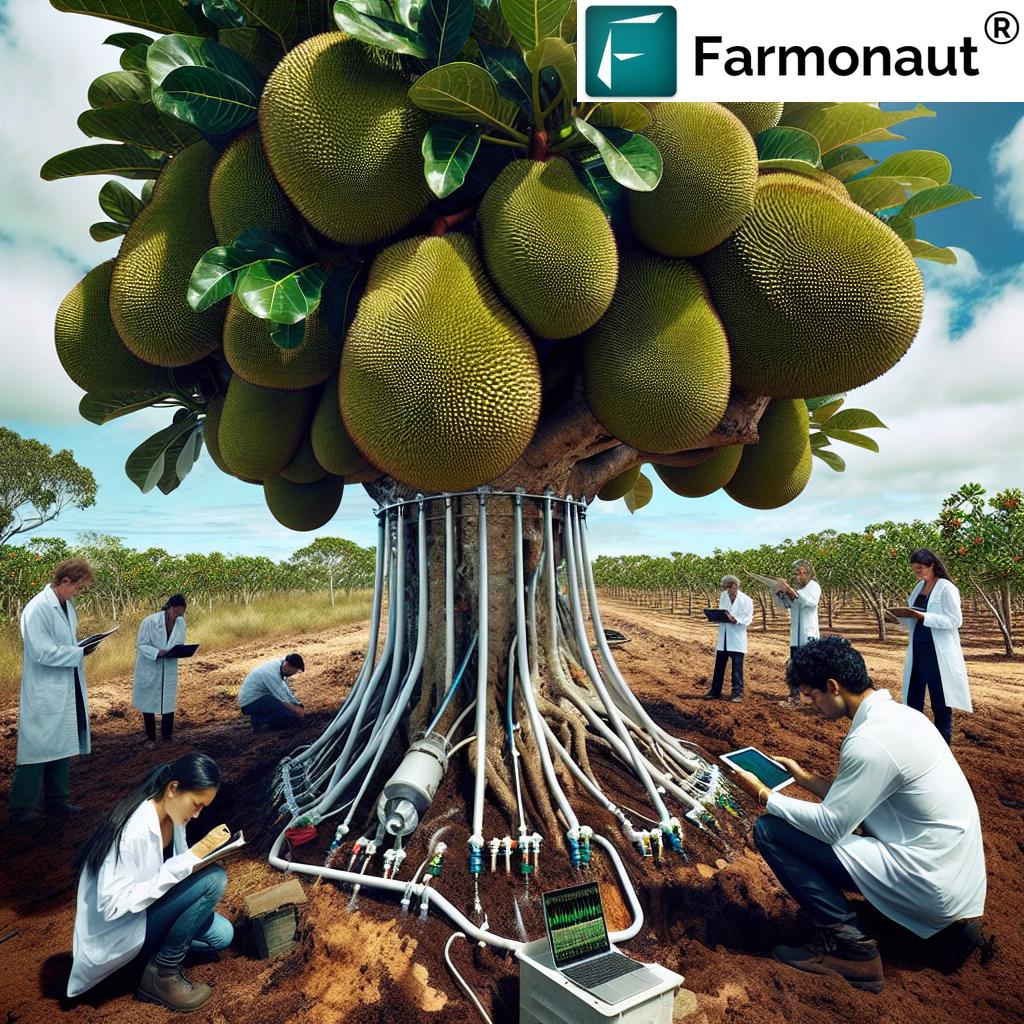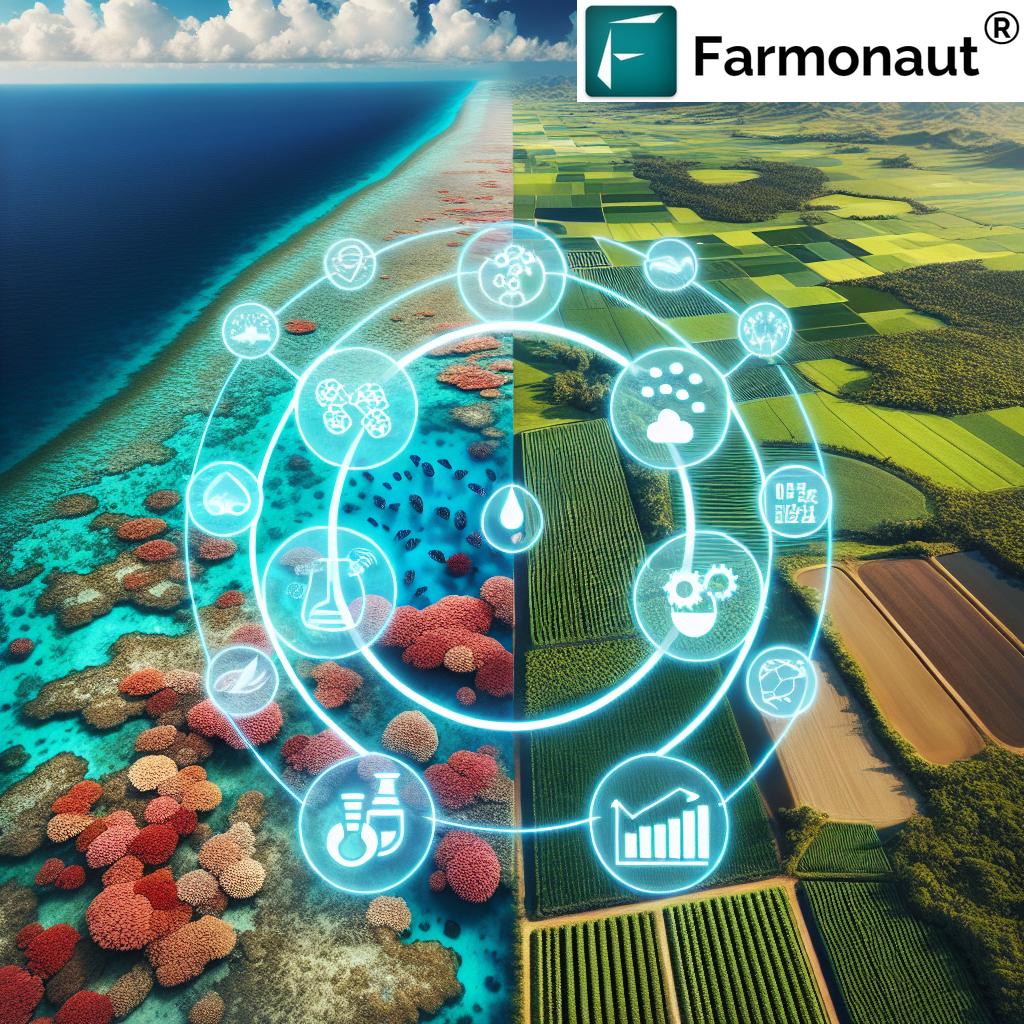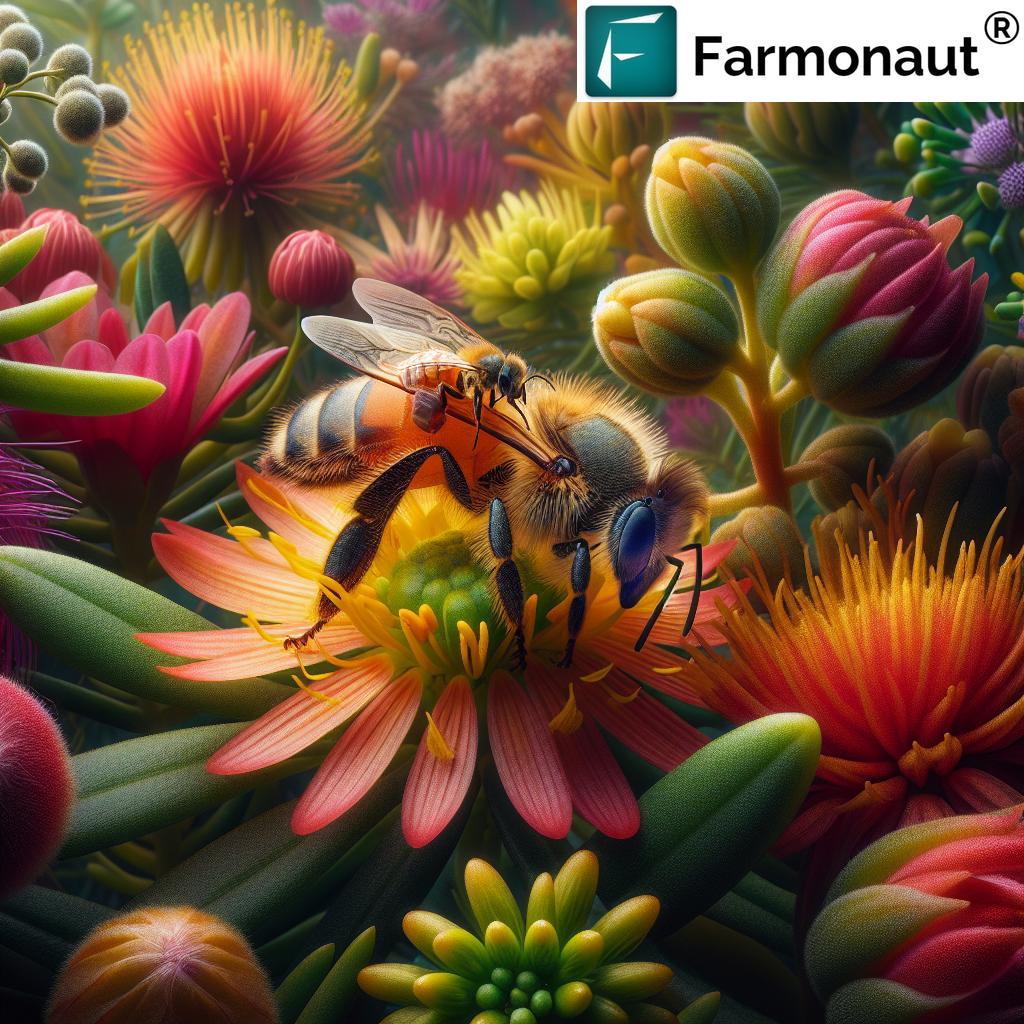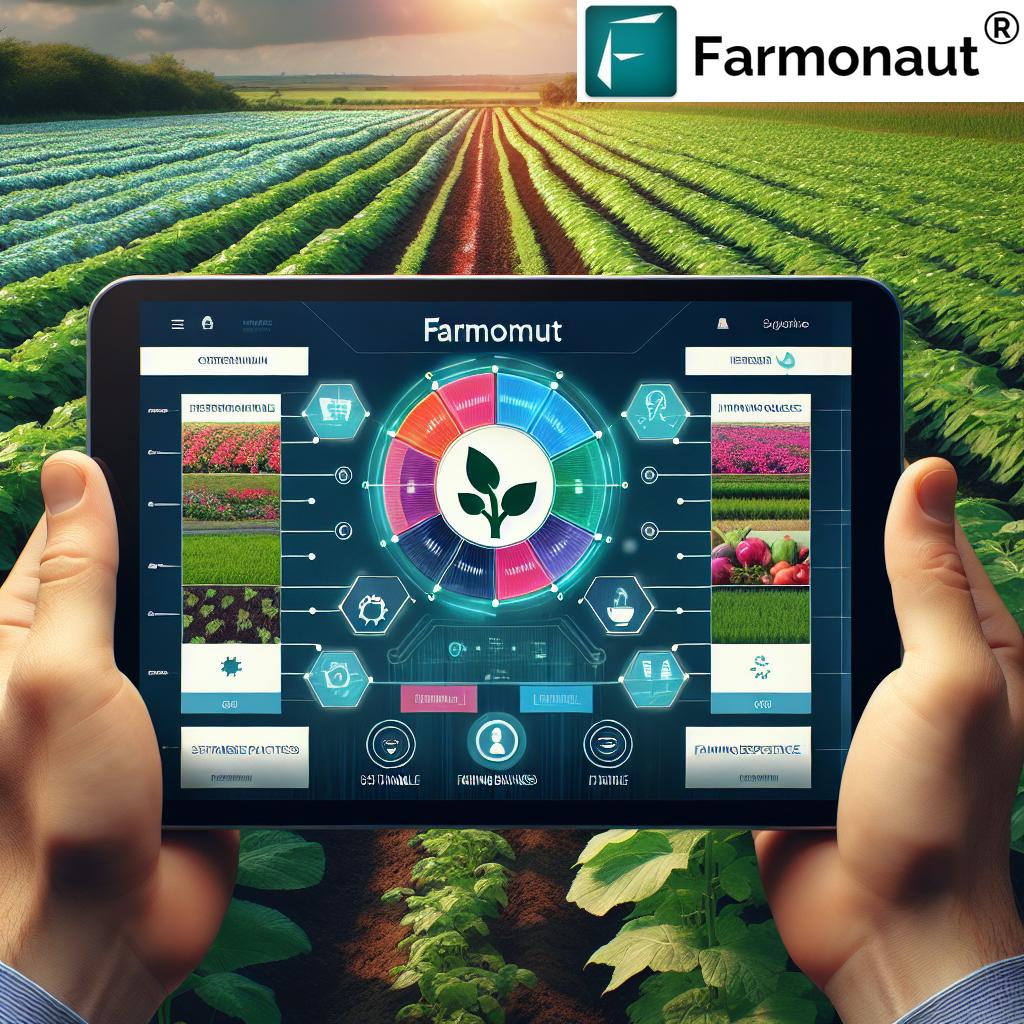Innovative Jackfruit Trials in Northern Australia: Pioneering Climate-Resilient Agriculture for Tropical Fruit Farmers

“Jackfruit trials in Carnarvon, Western Australia, explore high-density planting systems in subtropical desert climates, facing temperatures from intense heat to cold.”
In the heart of Carnarvon, Western Australia, a groundbreaking research project is reshaping the landscape of tropical fruit farming in Australia. Our team of agricultural scientists and horticulturists is spearheading innovative jackfruit cultivation techniques that promise to revolutionize the industry. This pioneering effort is not just about growing jackfruit; it’s about cultivating resilience in the face of climate change and extreme weather conditions.
As we delve into the intricacies of this research, we’ll explore how these subtropical desert crop trials are paving the way for a new era of climate-resilient agriculture. From high-density planting systems to cutting-edge irrigation methods, we’re uncovering strategies that could transform the way farmers approach tropical fruit production in challenging environments.
The Carnarvon Jackfruit Project: A Bold Step into the Future
The Carnarvon jackfruit trial is more than just an experiment; it’s a vision for the future of agriculture in northern Australia. Situated in the subtropical desert climate of Western Australia, this research site presents unique challenges and opportunities for tropical fruit cultivation.
- Extreme temperature fluctuations
- Limited water resources
- Strong winds and cyclone threats
- Unique soil composition
These environmental factors have long been seen as barriers to successful tropical fruit production in the region. However, our research is turning these challenges into opportunities for innovation.
High-Density Planting: Maximizing Land Use and Yield
One of the cornerstones of our research is the implementation of high-density planting systems. Traditional jackfruit orchards typically space trees far apart, but our approach brings them closer together, allowing for more efficient land use and potentially higher yields per hectare.
Benefits of high-density planting in jackfruit cultivation:
- Increased number of trees per acre
- Optimized use of water and nutrients
- Enhanced pollination due to proximity
- Easier harvesting and management
This innovative approach not only maximizes land use but also creates a microclimate within the orchard that can help protect trees from extreme weather events.
Trellising Techniques: Supporting Growth and Managing Canopy
In our Carnarvon trials, we’re exploring various trellising techniques adapted for jackfruit trees. These systems are crucial for supporting the weight of the fruit and managing the tree’s canopy in high-density plantings.
Innovative trellis systems being tested:
- V-trellis for optimal light penetration
- Pergola systems for wind protection
- Espalier techniques for easier fruit access
These trellising methods not only support the trees but also contribute to better air circulation and light distribution throughout the orchard, factors critical for fruit development and disease prevention.
Irrigation Innovation: Maximizing Water Efficiency
Water scarcity is a significant challenge in Carnarvon’s subtropical desert climate. Our research is pioneering sustainable irrigation methods tailored for jackfruit cultivation in water-stressed environments.
Advanced irrigation techniques under investigation:
- Precision drip irrigation systems
- Subsurface irrigation for reduced evaporation
- Sensor-based irrigation scheduling
- Recycling and reuse of irrigation water
These methods not only conserve water but also ensure that each tree receives the optimal amount of moisture, critical for fruit development and tree health.
As we continue to innovate in jackfruit cultivation, technology plays a crucial role in monitoring and optimizing our techniques. Farmonaut’s satellite-based crop monitoring system offers valuable insights into vegetation health and soil moisture levels, complementing our on-ground research efforts. For farmers looking to implement these advanced monitoring techniques,  provides easy access to these tools.
provides easy access to these tools.
Protecting Against the Elements: Sunburn and Wind Damage Prevention
The harsh Australian sun and strong winds pose significant threats to jackfruit crops. Our research is developing innovative extreme weather crop protection strategies to safeguard the trees and fruit.
Protective measures being tested:
- Reflective particle films to reduce sunburn
- Shade cloth systems for young trees
- Windbreak designs using native species
- Foliar sprays to enhance UV resistance
These measures not only protect the trees from immediate damage but also contribute to long-term tree health and fruit quality.
Soil Health and Pathogen Management
The unique soil composition in Carnarvon presents both challenges and opportunities for jackfruit cultivation. Our research focuses on innovative soil treatments and pathogen management strategies to create an optimal growing environment.
Soil health initiatives:
- Organic matter incorporation for improved structure
- Biochar applications for water retention
- Beneficial microorganism inoculation
- Strategic cover cropping for nutrient cycling
These soil management practices not only support healthy tree growth but also enhance the orchard’s resilience to pests and diseases.
“The innovative jackfruit research is part of a broader northern Australia horticulture initiative, investigating sustainable orchard management practices for multiple crops.”
Comparative Analysis: Traditional vs. Innovative Jackfruit Cultivation
| Cultivation Aspect | Traditional Method | Innovative Approach | Climate Resilience Impact | Yield Improvement Estimate |
|---|---|---|---|---|
| Planting Density | 10-15 trees/hectare | 50-100 trees/hectare | High – Improved microclimate | 30-50% increase |
| Trellising Technique | Minimal or none | V-trellis or Pergola systems | Medium – Better wind resistance | 20-30% increase |
| Irrigation Method | Flood or sprinkler | Precision drip or subsurface | High – Water conservation | 15-25% increase |
| Sunburn Protection | Natural canopy only | Reflective films and shade cloth | High – Heat stress reduction | 10-20% increase |
| Soil Treatment | Basic fertilization | Biochar and microorganism inoculation | Medium – Improved soil health | 15-25% increase |
This table clearly illustrates the potential benefits of adopting these innovative techniques in jackfruit cultivation. The estimated yield improvements and enhanced climate resilience offer compelling reasons for farmers to consider these new methods.
For farmers looking to implement advanced crop monitoring techniques similar to those used in our research, Farmonaut offers powerful tools through their mobile applications. 

Climate Resilience: Preparing for the Future
Our research in Carnarvon is not just about growing jackfruit; it’s about developing climate-resilient agriculture strategies that can be applied to various tropical and subtropical crops. The lessons learned here have far-reaching implications for farmers across northern Australia and beyond.
Key aspects of climate resilience in our trials:
- Drought tolerance through efficient water use
- Heat resistance via protective measures
- Wind resilience through innovative trellising
- Soil health improvement for long-term sustainability
These strategies are designed to help farmers adapt to changing climate conditions while maintaining or even improving their crop yields.
Beyond Jackfruit: Implications for Other Tropical Crops
While our research focuses on jackfruit, the insights gained have broad applications for other tropical fruit crops. The innovative techniques we’re developing can be adapted for crops like mangoes, papayas, and other exotic fruits.
Potential applications for other crops:
- High-density planting systems for mangoes
- Trellising techniques for passion fruit vines
- Water-efficient irrigation for dragon fruit
- Soil health strategies for avocado orchards
This research is paving the way for agricultural diversification strategies that could transform the horticultural landscape of northern Australia.
The Role of Technology in Modern Orchard Management
In our Carnarvon trials, we’re not just relying on traditional agricultural practices; we’re integrating cutting-edge technology to enhance our research and improve orchard management. This is where platforms like Farmonaut come into play, offering invaluable tools for precision agriculture.
Key technological applications in our research:
- Satellite-based crop health monitoring
- AI-driven advisory systems for farm management
- Remote sensing for soil moisture analysis
- Blockchain-based traceability for supply chain management
These technological tools not only enhance our research capabilities but also offer practical solutions for farmers looking to implement precision agriculture techniques in their own orchards.
For those interested in integrating advanced satellite monitoring into their farming practices, Farmonaut’s API offers a powerful solution. Developers can access this technology through the Farmonaut API, with comprehensive documentation available in the API Developer Docs.
Collaborative Research: A Key to Success
Our work in Carnarvon is part of a broader northern Australia horticulture research initiative, bringing together experts from various fields. This collaborative approach ensures that our findings are comprehensive and applicable across different regions and crop types.
Key collaborators in our research:
- Agricultural scientists and horticulturists
- Climate researchers and meteorologists
- Soil scientists and microbiologists
- Agricultural engineers and irrigation specialists
This multidisciplinary approach allows us to address the complex challenges of tropical fruit farming from multiple angles, leading to more robust and effective solutions.
Economic Implications: Boosting Profitability for Farmers
While our primary focus is on developing climate-resilient agriculture techniques, we’re also keenly aware of the economic implications of our research. The innovative methods we’re testing have the potential to significantly boost profitability for tropical fruit farmers.
Economic benefits of our research:
- Increased yield per hectare through high-density planting
- Reduced water costs with efficient irrigation systems
- Lower pest management expenses due to improved orchard health
- Potential for premium pricing through improved fruit quality
These economic advantages make the adoption of our innovative techniques an attractive proposition for farmers looking to improve their bottom line while also enhancing their environmental sustainability.
Future Directions: Expanding the Research
As we continue our work in Carnarvon, we’re already looking ahead to the next phase of our research. Future directions include:
- Expanding trials to other regions in Queensland and the Northern Territory
- Investigating additional tropical fruit varieties
- Developing advanced cyclone resilience strategies
- Exploring the potential of vertical farming techniques for tropical fruits
These future research areas will further our understanding of tropical fruit cultivation in challenging environments and continue to push the boundaries of what’s possible in Australian agriculture.
Conclusion: A New Era for Tropical Fruit Farming in Australia
Our innovative jackfruit trials in Carnarvon, Western Australia, represent more than just a single research project; they symbolize a new era in tropical fruit farming for Australia. By combining traditional agricultural knowledge with cutting-edge technology and innovative techniques, we’re paving the way for a more resilient, productive, and sustainable future for tropical fruit growers across the country.
As we continue to refine our methods and share our findings, we invite farmers, researchers, and agricultural enthusiasts to join us on this exciting journey. Together, we can transform the landscape of tropical fruit farming in Australia, creating a model for climate-resilient agriculture that can be adapted and implemented around the world.
For those looking to implement some of the advanced monitoring techniques discussed in our research, Farmonaut offers a range of subscription options to suit different needs:
Frequently Asked Questions
Q: What makes the Carnarvon jackfruit trials unique?
A: The Carnarvon trials are pioneering high-density planting systems and innovative orchard management techniques specifically adapted for subtropical desert climates, facing extreme temperature fluctuations and water scarcity.
Q: How does high-density planting benefit jackfruit cultivation?
A: High-density planting maximizes land use, increases yields per hectare, optimizes water and nutrient use, and creates a beneficial microclimate that can protect trees from extreme weather events.
Q: What innovative irrigation methods are being tested?
A: The research explores precision drip irrigation, subsurface irrigation, sensor-based scheduling, and water recycling techniques to maximize water efficiency in the water-stressed environment of Carnarvon.
Q: How are the trials addressing the challenge of extreme weather?
A: The research incorporates protective measures such as reflective particle films, shade cloth systems, windbreak designs, and foliar sprays to enhance the trees’ resilience against sunburn, heat stress, and wind damage.
Q: Can the findings from these trials be applied to other tropical fruits?
A: Yes, many of the techniques developed for jackfruit, such as trellising methods, irrigation strategies, and soil health management, can be adapted for other tropical fruits like mangoes, papayas, and dragon fruit.
Q: How is technology being integrated into the research?
A: The trials utilize advanced technologies such as satellite-based crop monitoring, AI-driven advisory systems, and remote sensing for soil analysis to enhance research capabilities and develop practical solutions for precision agriculture.
Q: What are the potential economic benefits for farmers adopting these techniques?
A: Farmers can potentially see increased yields, reduced water and pest management costs, and opportunities for premium pricing due to improved fruit quality, all contributing to enhanced profitability.
Q: How does this research contribute to climate-resilient agriculture?
A: The techniques developed focus on drought tolerance, heat resistance, wind resilience, and soil health improvement, all aimed at helping farmers adapt to changing climate conditions while maintaining or improving crop yields.


















